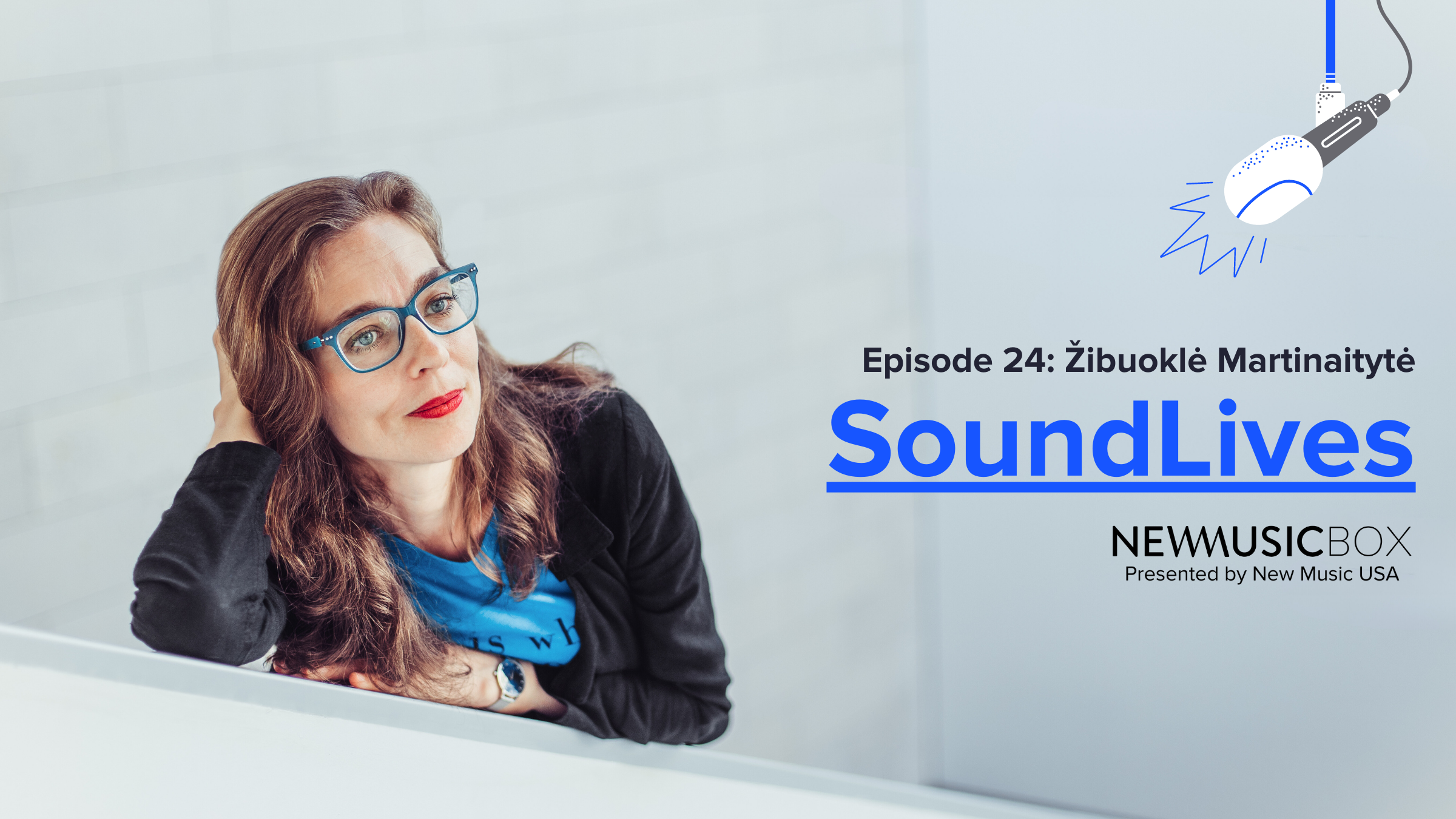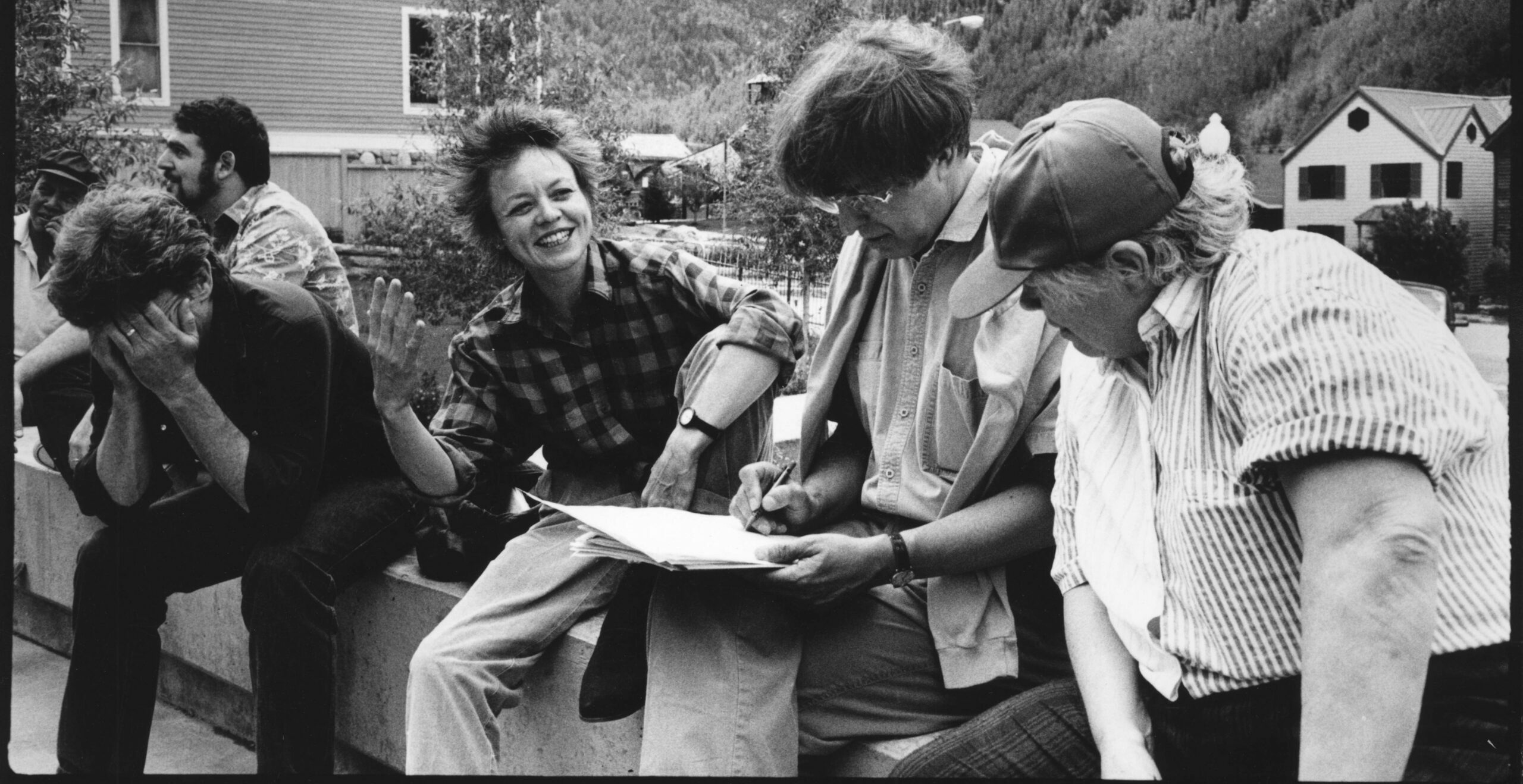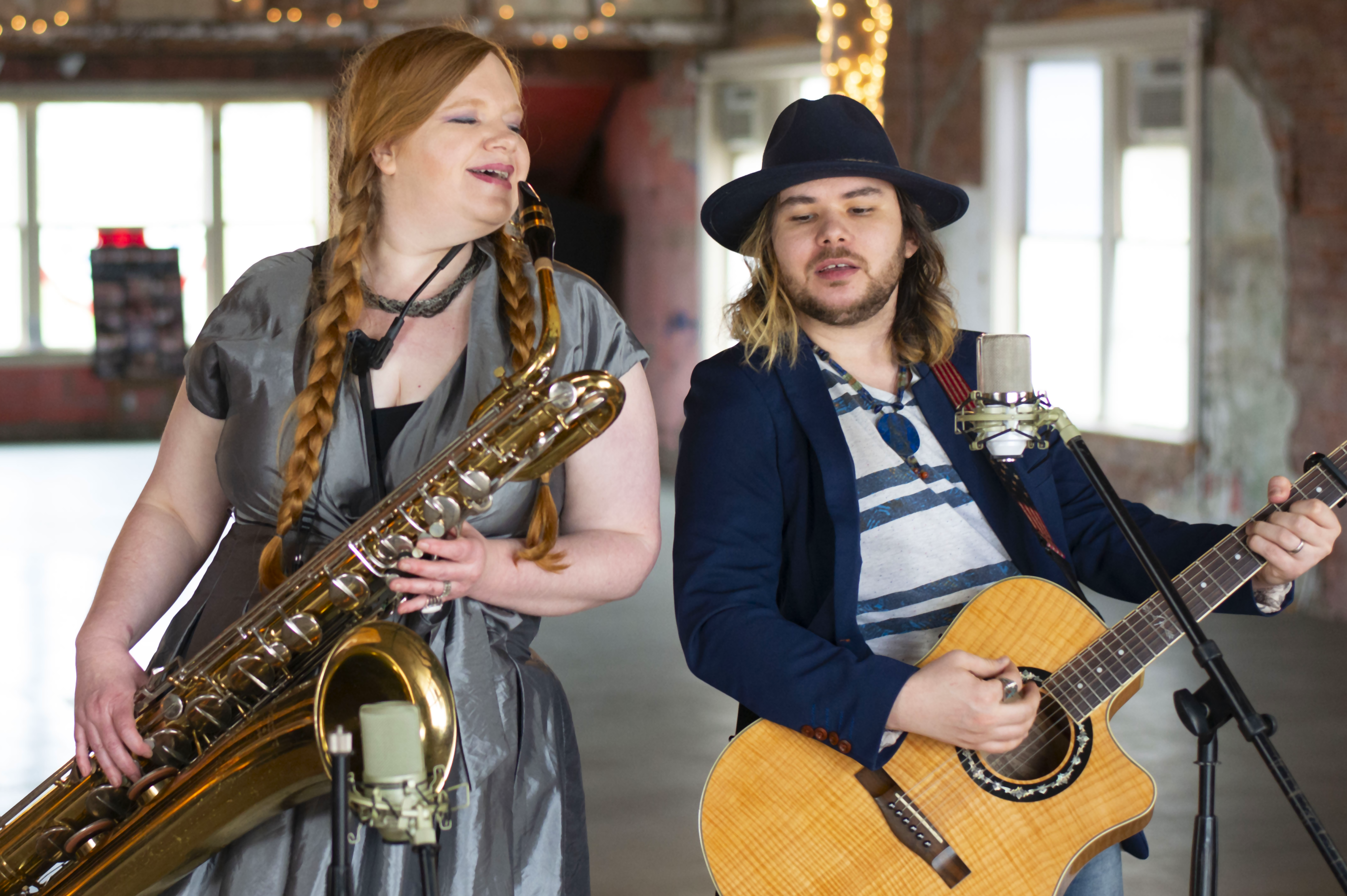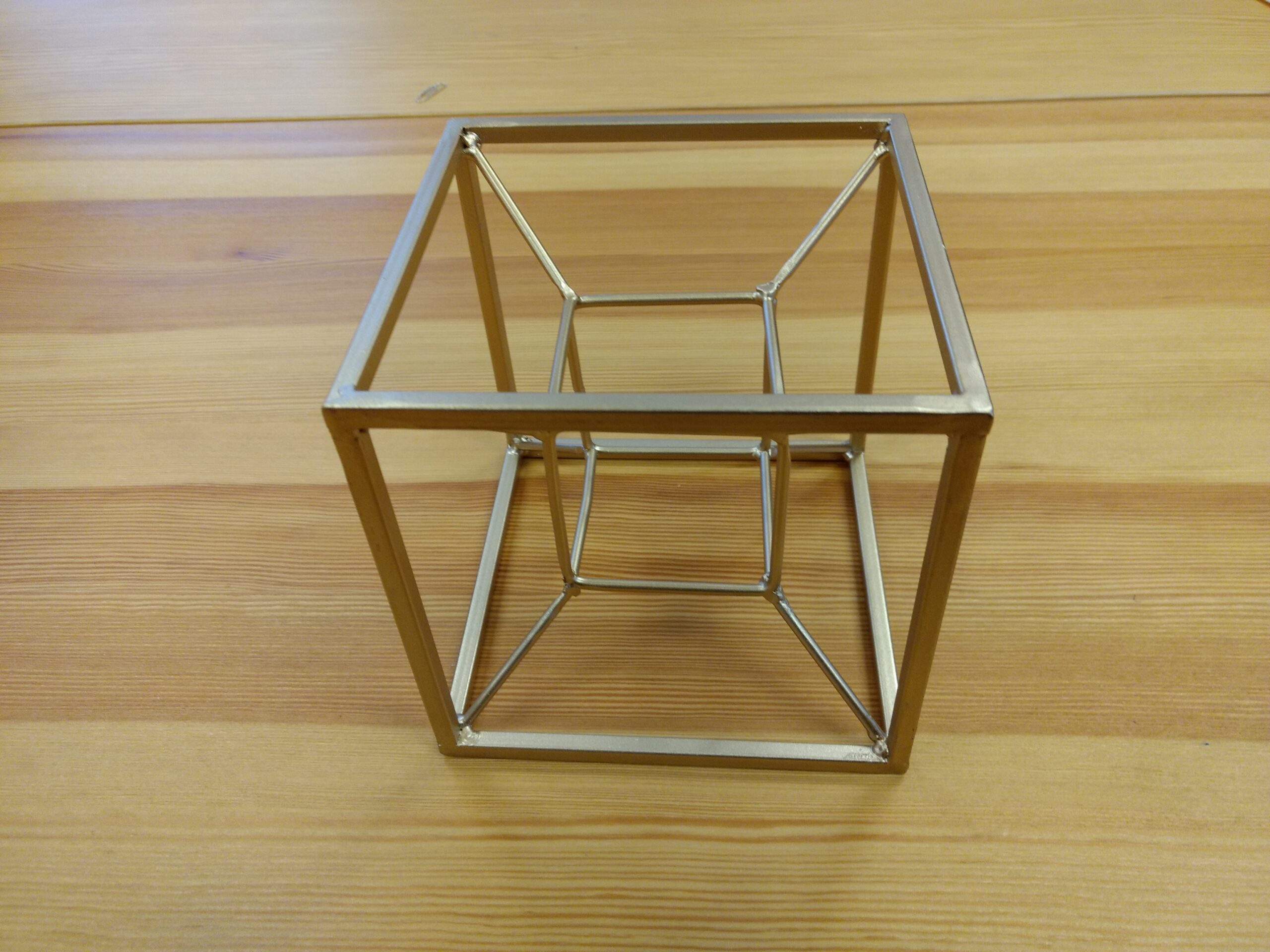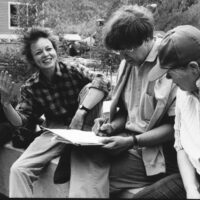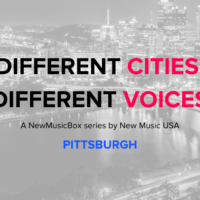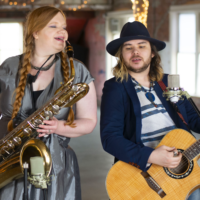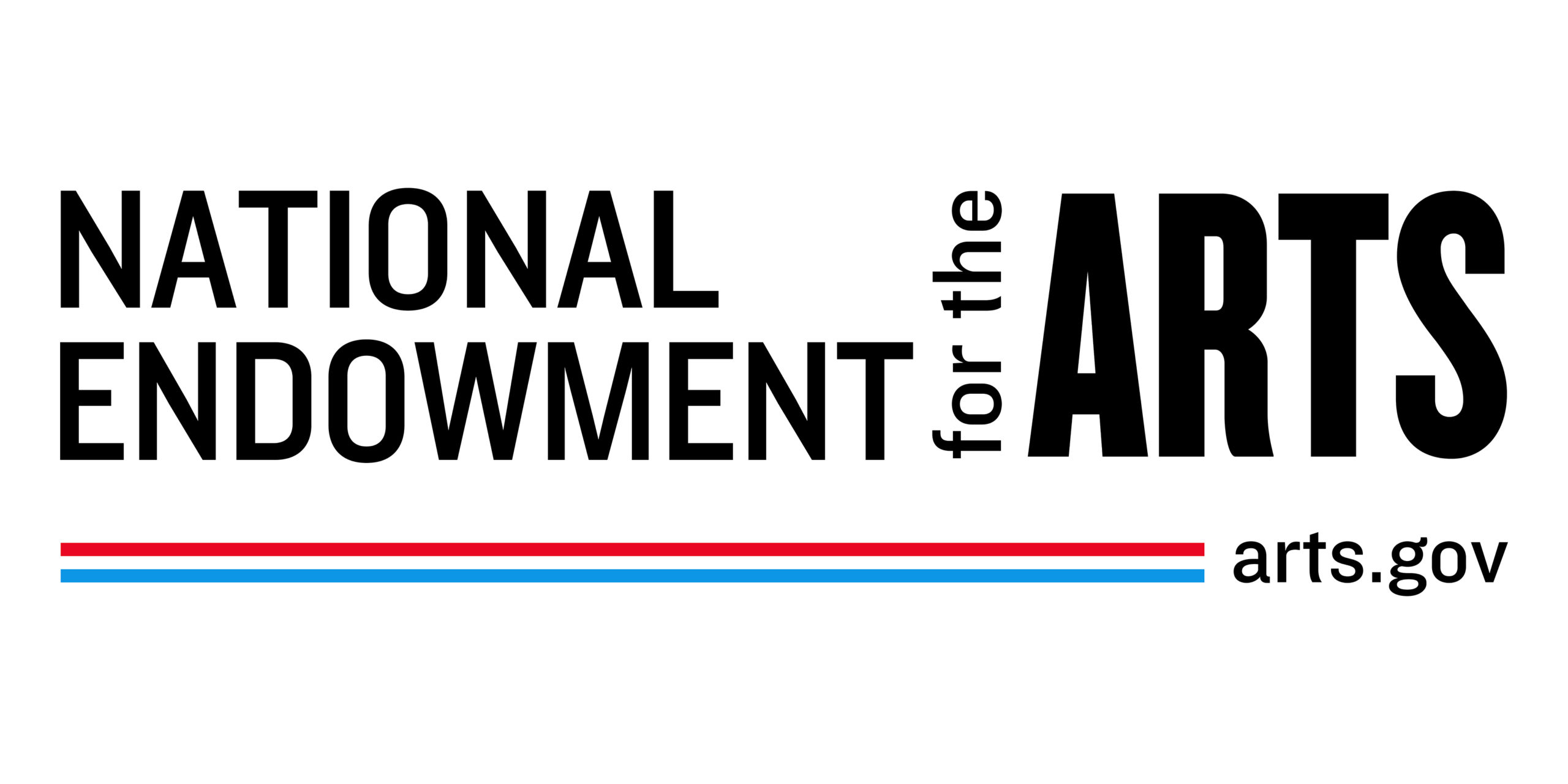
Given that each music professor achieves his or her expertise in a highly idiomatic way and must impart that expertise in a highly idiomatic way, how does one measure learning across a cohort of music school students?

Every so often—sometimes in lessons, sometimes in the classroom, sometimes in casual conversations about classical music—somebody will remark that this or that characteristic of a musical work “had to be” the way that it appears in the score: in other words, that internal, immanent musical criteria necessitated certain compositional decisions down the line. It’s a cool thing to say, but it’s not a particularly true thing to say.

John Luther Adams has been named among the ten recipients of the 2011 Heinz Awards. The awards, announced this morning by Teresa Heinz and the Heinz Family Foundation, each carry $100,000 for unrestricted use and a medallion. They will be presented at a ceremony on November 15 in Washington, D.C.

In my view, one of the more insidious terms that often crops up in discussions of experimental music is The Audience. People who talk about The Audience generally seek to appease this mysterious beast, with sacrifices of artistic integrity and psalms in a language they believe their deity will find pleasant and simple to comprehend. I strongly believe that they have the right to compose music in whatever style they find most satisfying, and I will fight for their right to do so.

This past May, NewMusicBox contributor Andrew Sigler and I each covered Austin, Texas’s “Fast Forward Austin” festival, and those looking for an audio snapshot of that city’s emerging new music scene would do well to give Line Upon Line Percussion’s new album a listen. This trio of percussionists—Adam Bedell, Cullen Faulk, and Matthew Tedori—formed at the University of Texas at Austin in 2009, and the four composers whose works are featured on the album are all Austin-based as well.

Looking out into the choral world, there’s a lot of commissioning going on. When conductor Cynthia Powell and I started Melodia Women’s Choir nine years ago, we knew we wanted to commission composers to create new work for the group. Since we were both new to commissioning, however, we had a lot of questions. How much time does a composer need? Is it reasonable to request sample movements before delivery of the final piece?

I had one of the most peculiar listening experiences this weekend as a result of pure personal ignorance. One of the discs I purchased at Santiago’s “Persian Market” was a collection of recordings by a group called Los 4 Ases.

If there’s one thing you can count on about an anniversary, it’s that there will always be another one. They just keep coming no matter what. As the 9/11 anniversaries come and go, you think that maybe this year you won’t mind so much, that this’ll be the year when you don’t notice it coming a month in advance because you become irrationally irritable and sensitive or because you can’t sleep.

I try to finish each of my composer interviews with questions about the future—where each composer sees contemporary music headed, any new trends they may be aware of, etc., but also what projects they themselves are looking forward to tackling in the next five to ten years. While answers to this last question have spanned the gamut as you might expect, one particular genre has cropped up as the easy frontrunner.

I posed a question last week asking if anyone could offer insight into the development of the letter-based chord system(s) used by so many improvising musicians today. While no answers were offered, a question was posed, “Have jazz compositions ever shown voice leading using anything like figured bass notation?”

After trying every which way to get other women on board and writing regularly for the site, with precious little success, it is becoming quite clear that blogging is simply not a format that interests many women.

How many ways are there to end a piece of music? If we take “to end” as referring only to the most obvious musical punctuation, it seems that there are precious few options: despite great variety and nuance, most endings either “fade out” through some manipulation of dynamic, texture, or activity, or else they build to a kind of rhythmic singularity that assertively marks the music’s conclusion.

A thought experiment: you’re a performer, opening a score for the first time. On the first page of music, in small print, just under the title, a phrase catches your eye: “To Milton Babbitt.” Really? “Oooh,” you might think, or, “Yikes!” But deeper reactions follow. “What’s the story here?” you wonder.

Narong Prangcharoen has been named the winner of ACO’s 2011 Annual Underwood Commission, bringing him a $15,000 cash award for a work to be premiered by ACO in a future season. Chosen from six finalists during ACO’s 20th annual Underwood New Music Readings on June 3 and 4, 2011, Prangcharoen won the top prize with his work Pubbanimitta (“Foreboding”).

there’s only one affect that musical commemorations of 9/11 are allowed to convey, namely a kind of reverent solemnity. Who can object to that? There’s only one way to feel about 9/11 if you’re an American. That’s precisely why the notion of a commemorative concert seems wrong to me: Art, at the most basic level, is about different ways of feeling about things.

Stillness and Change contains four of John Aylward’s chamber works, all of which were composed within the last three years. It is an excellent snapshot of where Aylward currently is as a composer, an activity he is engaged in in addition to being an accomplished concert pianist and a formidable music theorist, plus the artistic director of the modular East Coast Contemporary Ensemble as well as the Etchings Festival.

In his recent book, Truth, Beauty and Goodness Reframed, Howard Gardner—MacArthur Fellow, Harvard professor, and public intellectual associated with the Museum of Modern Art, among other institutions—grapples with some of the most important challenges faced by people who aspire to a life as a moral citizen in a changing world.

Success is a funky thing…everyone wants to achieve it, and yet the goalposts for acquiring success are not only different for each of us, but continually moving (as goalposts seem to have a habit of doing these days). The topic of what is “success” for a composer never seems to actually come out into the light, but it seems to be subliminally ever-present when you hang around enough of them long enough.

On Monday, I was working at Iguana New York in pianist/vocalist Rick DellaRatta’s group, Jazz For Peace, with drummer Art Lillard. It was part of an event sponsored by Celebrate Shamone and Make a Better World Foundation to celebrate the legacy of Michael Jackson and raise funds to donate musical instruments to underprivileged children. The three musicians are very similar in their backgrounds and changed styles for each song as part of their program, which consisted largely of DellaRatta’s original compositions and arrangements of jazz standards.

Hearing so many tales this time of year about creating syllabi and planning classes brings to mind my favorite class of all time in graduate school. It did not include a syllabus, a textbook, or for that matter any reading or writing whatsoever!

One of my favorite things about music is its capacity to sharpen and enrich our perceptions. Perhaps it’s the sensation of time that becomes most heightened during music performance and listening—and to me, time certainly is a sensation more than an immutable facet of external reality, so much so that it might be considered more akin to our other five senses.

Though his formal education includes study at the New England Conservatory, Fred Hersch readily points out how the on-the-bandstand schooling he received in jazz clubs like Bradley’s in New York prepared him to be the musician is today. In the course of our conversation, we spoke about this journey and all that has come in its wake, but returned again and again to the idea of taking chances, trying things out, seeing what happens if—Hersch seemingly unbowed by the anxieties such open-ended performance situations bring into play. Later, he came at it head-on: “I think there has to be a certain element of danger in jazz, or it isn’t really jazz.”

It feels so strange to be writing a post for NewMusicBox from the site’s geographic home of New York, but that’s just what I’m doing today: I’m in town for the dry part of the weekend to catch a performance of my string quartet by the excellent Locrian Chamber Players. It was exactly the experience I’d hoped for.

Composer Keeril Makan’s new CD Target gives the ears a workout with timbral complexity drawn from a remarkably spare amount of material that sneaks up and delivers a whollop of powerful emotional content.
